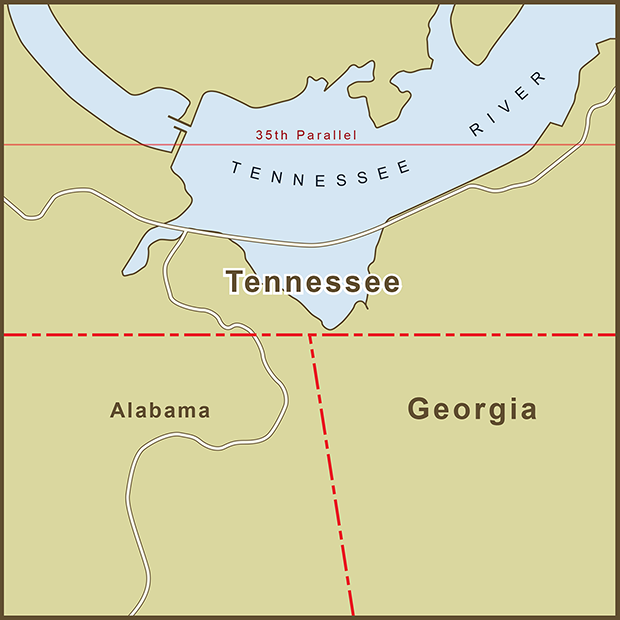There are many historians and economists who say that the battles of the future will be fought over water not oil. Though only a battle of words, one is already occurring between Georgia and Tennessee.
The original border between the two states was supposed to be drawn along the 35th Parallel. The actual border that was staked out was about a mile south of the where it was supposed to be. Stories differ as to why this happened. One postulates that the line where the border should have been drawn was difficult terrain so the survey crew marked the line on more navigable land. I love stories of human error so this is the story I want to believe but this can't be the first time a crew had to mark a line across challenging terrain. The other theory attributes the mistake to a simple matter of instrument accuracy. Whatever the case, the border was staked out and a map was drawn with the border more or less where it lies today.
The error was eventually caught but by then the wrong border had been around long enough that it had become the accepted state line. The border issue is being raised now because Georgia has a water shortage. If the border had been drawn accurately, a small part of the Tennessee River would lie inside Georgia, giving it access to much more water than it has today. Atlanta is sometimes called, "The Las Vegas of the American Southeast" for its habit of living beyond its means when it comes to water.
Georgia politicians have made numerous attempts to resolve the border issue with Tennessee ("in the 1890s, 1905, 1915, 1922, 1941, 1947, 1971" and 2008 according to one source). But such a change would require approval from Congress and Tennessee... something that's unlikely to happen. Moving the border would solve Georgia's problems but would create new ones. A Washington Post article reported on two issues that Georgia does not seem to bring up in its proposal, "Not only would Georgia get a chunk of Chattanooga, but Mississippi would get a slice of Memphis."
Perhaps the best quote on the border issue came from a contemporary Georgia surveyor, Bart Crattle who said, "It's correct -- no matter how wrong it is."
Sources: Wikipedia , Washington Post , NY Times


